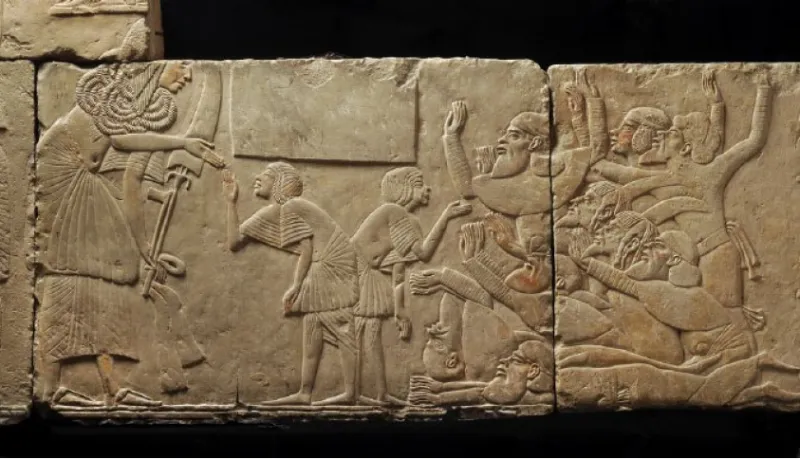When I first landed in Cairo, the late afternoon heat rolled over me like a thick, warm wave.
The taxi rank outside the airport was a tangle of honking cars, waving arms, and drivers calling out destinations.
I was jet-lagged, carrying too many bags, and, unlike my last few trips, armed with something surprisingly old-fashioned: cash.
Not just any cash, but a neat stack of Egyptian pounds I’d picked up before leaving the UK.
My reasoning was simple: Egypt’s markets, street vendors, and small cafés aren’t always set up for cards.
Plus, I wanted to see what would happen if I relied on local currency instead of fumbling with card machines, exchange counters, or my phone’s translation app.
It turns out, it changed my trip in ways I didn’t expect.
Cash broke the ice
In Khan el-Khalili, Cairo’s famous souk, the air was heavy with the scent of spices and the metallic tang of brassware.
Sellers called out prices as I wandered past pyramids of saffron, towers of hand-painted lanterns, and endless rows of scarves.
Here’s the thing: when you’re waving a bank card around, the whole interaction feels distant. With cash in hand, crisp notes in bright colours, everything is face-to-face.
I quickly learned the Arabic numbers for 10, 20, 50, and 100, because vendors would point, smile, and write them in the air.
One shopkeeper even offered me a mint tea on the house after I confidently handed over the exact amount for a small copper dish.
Would that have happened if I’d been hunched over Google Translate, asking if he took Visa? I doubt it.
The real exchange rate lesson
On my second day, I took a felucca ride along the Nile at sunset. My boatman, Mahmoud, named his price with a grin.
I pulled out my notes, counting them slowly, not because I couldn’t afford it, but because I’d already spotted how much smoother things were when I knew the value of each bill.
I’d read beforehand on the Manor FX Egyptian pound guide about piastres (the smaller unit of currency) and how locals often round up or down depending on the situation.
That prep paid off. Mahmoud knocked off a few pounds from his starting price simply because I was speaking his money language.
No calculators. No phone apps. Just an honest exchange between two people on the banks of the Nile.
Street food tastes better when you pay in local currency
Egyptian street food is an adventure in itself. In Luxor, I queued behind schoolchildren at a tiny falafel stand.
The smell of frying herbs filled the air, and the man behind the counter worked fast, pressing green patties into sizzling oil.
Here’s where having cash came into its own: falafel sandwiches cost just a handful of pounds. Card payments? Not an option.
Even if they were, I’d have been embarrassed using my card for the equivalent of a few pence.
I paid with coins and smaller notes, which I’d stocked up on after reading the Egypt currency decoded blog.
It meant I could order what I wanted, when I wanted, without worrying about breaking big bills or slowing the queue.
And yes, the falafel really was the best I’ve ever eaten.
Temples, tombs, and ticket offices
Visiting ancient sites like the Karnak Temple or the Valley of the Kings is awe-inspiring, if you don’t get stuck in the wrong queue.
While larger ticket offices might accept cards, many smaller or less busy sites are cash-only.
One morning, I found myself at the entrance to a little-known tomb, tucked away behind the main tourist route.
The ticket seller didn’t speak much English, and my Arabic was limited to numbers and “thank you.”
Still, the moment I held out the exact cash, his face lit up and he waved me through with a cheerful shukran.
That’s the thing about travelling without over-relying on technology: you become more aware, more present, and more resourceful.
I left that tomb with a sense of quiet triumph and some incredible hieroglyph photos.
The moments in between
Egypt isn’t just about the headline attractions. Some of my favourite memories came in the small, everyday moments:
- Buying mango juice from a roadside stall in Aswan.
- Handing over coins for a bus fare and getting a smile instead of change.
- Spotting the subtle differences in each banknote’s design.
These moments happened because I was in the flow of daily life, not glued to a screen trying to find the nearest ATM that wouldn’t charge me a fortune.
Carrying pounds meant I could say yes to things instantly, without hesitation.
Why I’d do it again
I didn’t set out to prove a point; I just wanted to avoid airport exchange rates and foreign card fees.
But by carrying local currency, I discovered:
- It earns you respect. Locals notice when you’ve made the effort.
- It speeds things up. No waiting for card readers or Wi-Fi signals.
- It creates real connections. Conversations start more naturally when money isn’t a barrier.
Final thoughts
Egypt taught me that technology is a great tool, but it’s not always the best bridge between people.
Sometimes the shortest route is still the simplest: look them in the eye, know your numbers, and pay in their currency.
If you’re planning your own trip, I’d recommend picking up Egyptian pounds before you fly.
It’s easy, the rates are better, and it sets the tone for a smoother, richer travel experience.


